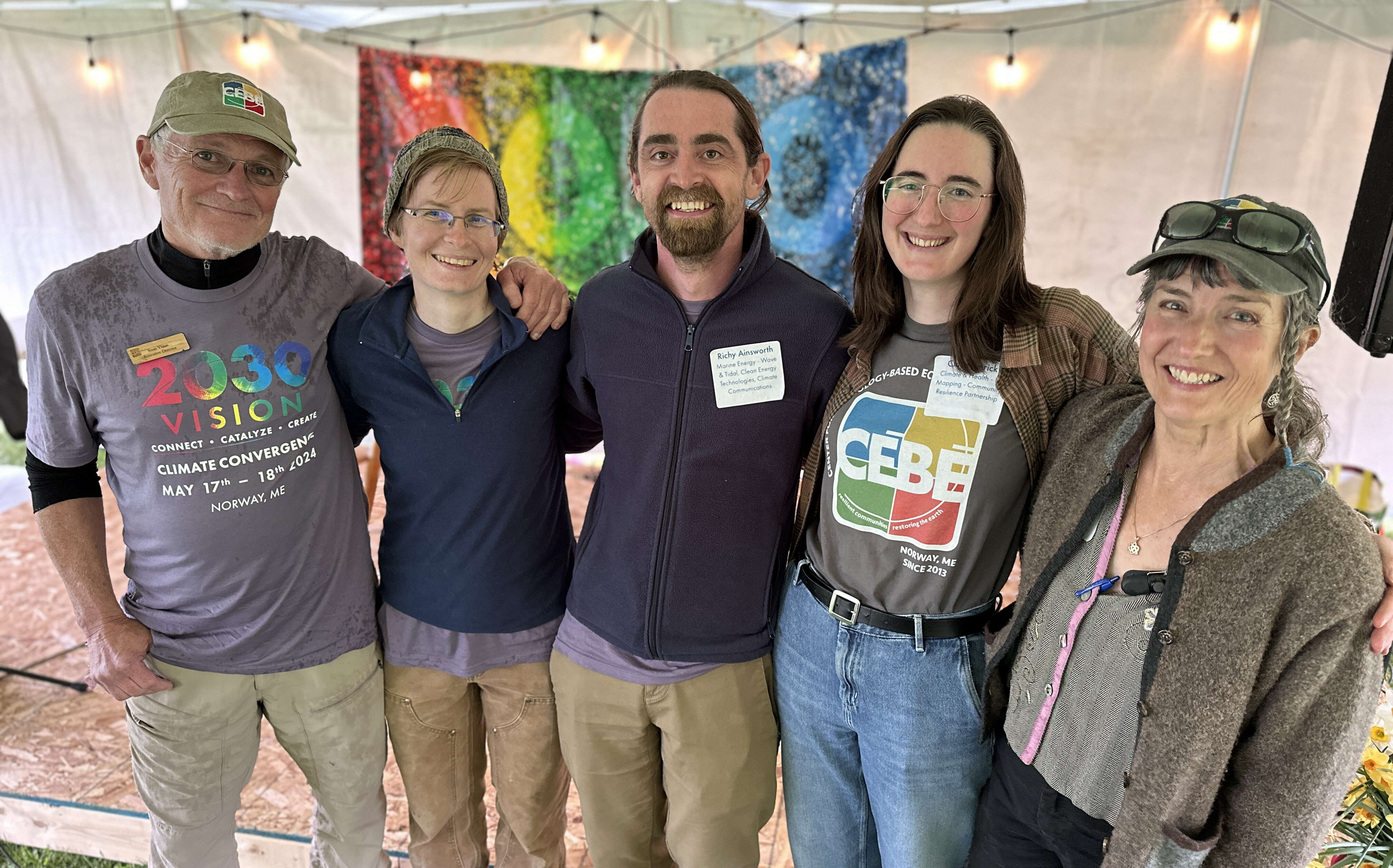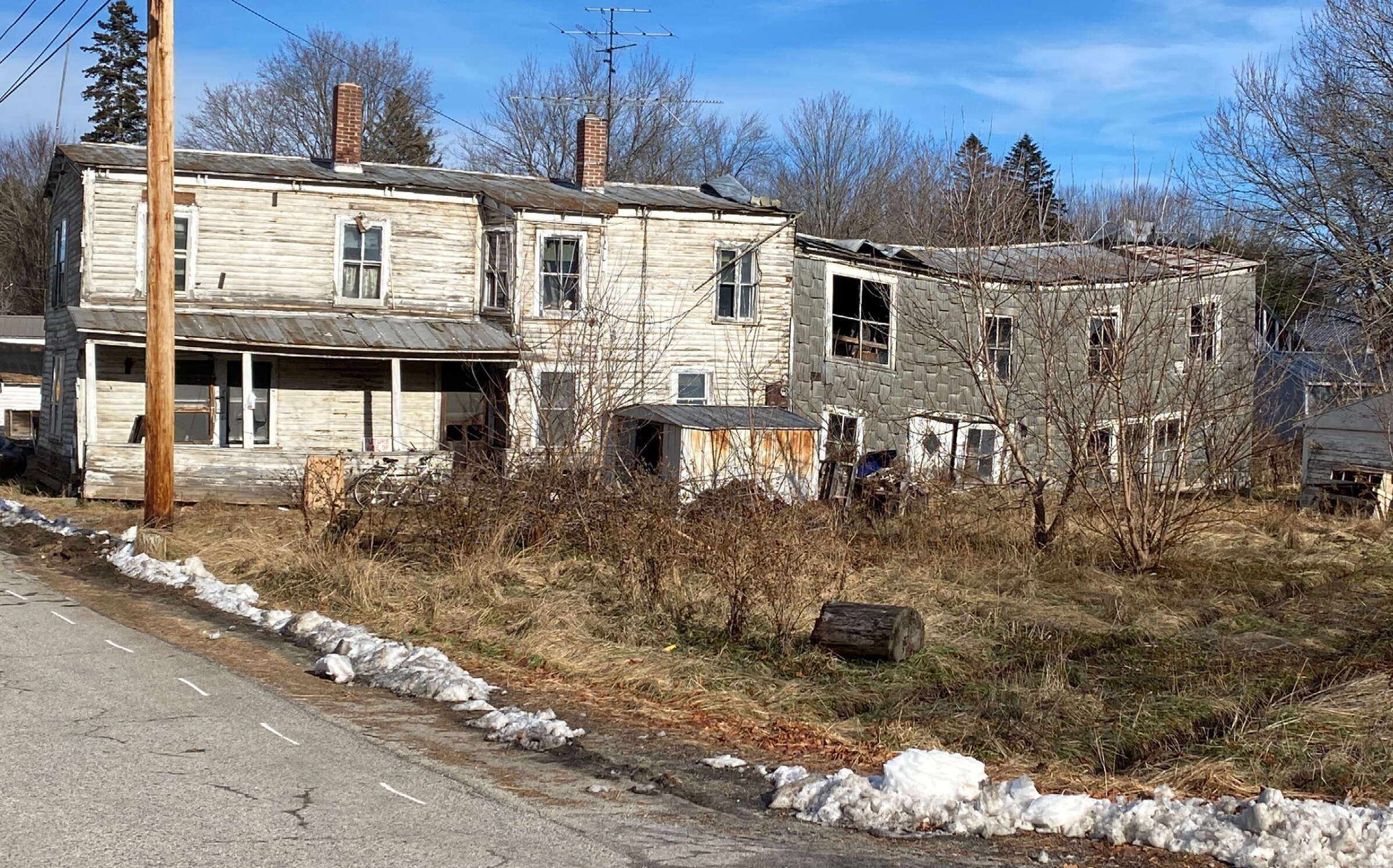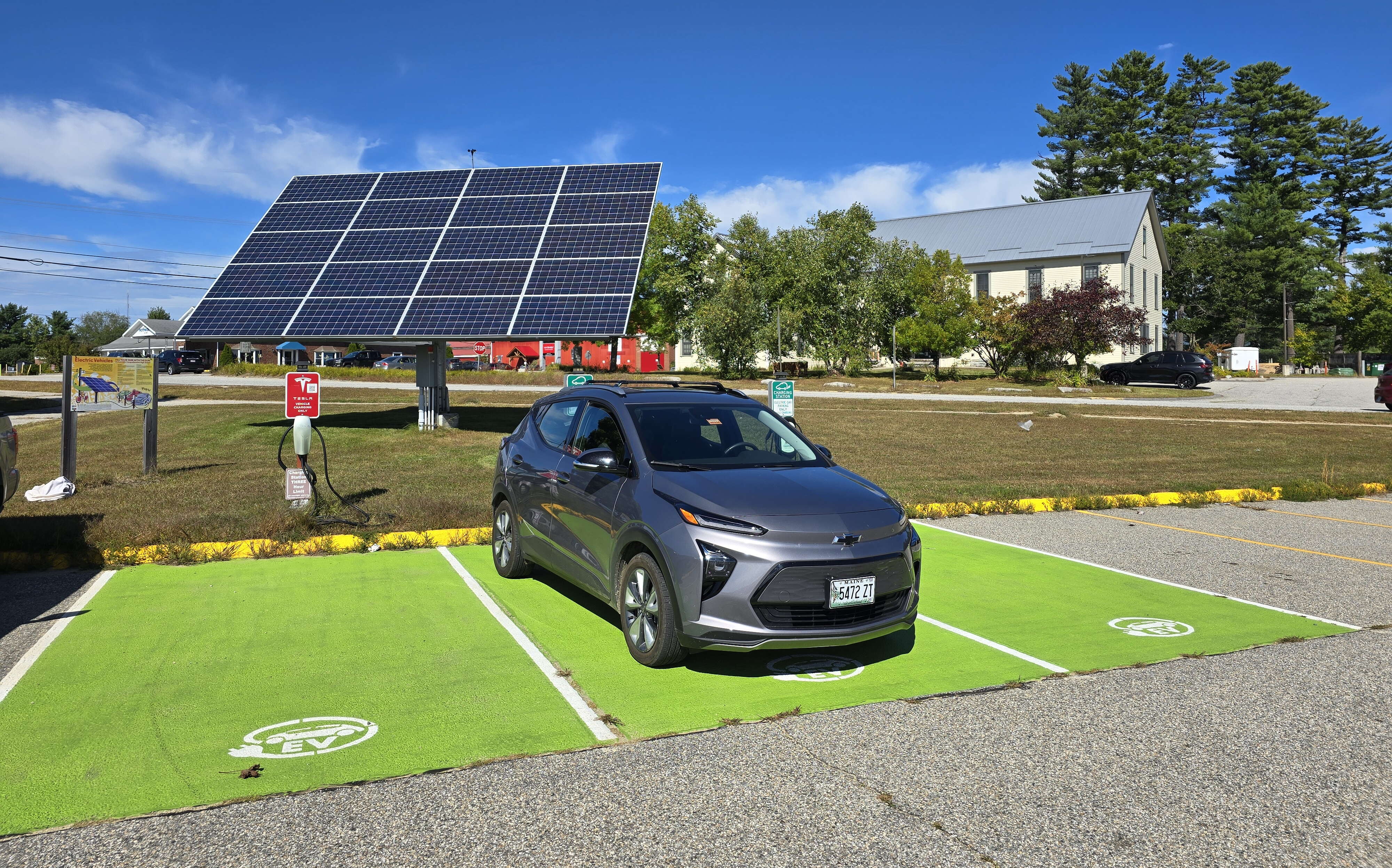
In Norway, a Maine nonprofit tackles the housing crunch, climate issues
 Rendering/ Courtesy, Center for an Ecology-Based Economy
The goal for the Norway Equitable Housing Co-op is to build 17 units of affordable workforce housing, including accessible and family units, in an energy-efficient building.
Rendering/ Courtesy, Center for an Ecology-Based Economy
The goal for the Norway Equitable Housing Co-op is to build 17 units of affordable workforce housing, including accessible and family units, in an energy-efficient building.
The Center for an Ecology-Based Economy, a nonprofit in the Oxford County town of Norway, has a mission “to engage the community in addressing the climate emergency” through education and practical solutions.
In 2023, the center purchased 33 and 35 Whitman St. as the future home of the Norway Equitable Housing Co-op, to add 17 affordable, resident-owned housing units for area workers and their families. With technical assistance from the Brunswick-based Genesis Fund, the coop expects to apply for funding to MaineHousing’s Rural Affordable Rental Housing Program this fall.
Other projects include the Maine Community Power Cooperative’s small-scale community solar farms, BikeShare’s free bikes in downtown Norway and elsewhere, and development of an EV charging network with 26 Level 2 chargers. The center is also working with the state to enroll towns in a climate resilience initiative and is lining Norway's Main Street with edible plants.
Mainebiz asked Renee Igo, the communications and project coordinator, about the center’s background and project roll-outs. Here’s an edited transcript.
Mainebiz: How did the center get started?
Renee Igo: We were founded in 2013 by a group of concerned local citizens who wanted to take action to address the climate crisis. We started with small-scale demonstration projects, trying to show people there are things you can do at home or in western Maine that doesn’t involve going to D.C. and lobbying.

MB: What’s an early project?
RI: We put in a solar-powered water pump at our community garden to water the vegetables. It was a demonstration of do-it-yourself solar. We got early funding to put in EV chargers, now providing some of the most robust EV charging for rural Maine.
MB: How did you finance early projects?
RI: We ran a crowdfunding campaign to launch one project in each of our focus areas — education, food, energy, shelter and transport. We’ve built a network of local donors and we’ve been applying for grants from foundations in Maine and the Northeast.
We received a grant from the U.S. Environmental Protection Agency for our environmental justice work and a grant from the U.S. Department of Energy for the community solar co-op.
MB: What does your education and outreach look like?
RI: Our education component includes working with schoolchildren, offering workshops to the public, working with towns to help elected officials find funding, working with school districts to help them weatherize.
We now work with 20 different municipalities and have several thousand folks who follow us and come to our events. We get folks from New Brunswick and New Hampshire reaching out and saying, ‘I saw what you did in western Maine and we’d like to do that.’
MB: Tell us about the housing co-op.
RI: There’s a well-known housing shortage in Maine, and especially western Maine and Norway. A small group of local renters and employees in downtown Norway came to us and said they were interested in starting a housing co-op. We worked with the Cooperative Development Institute [a Massachusetts nonprofit that develops cooperative enterprises] and pursued the idea of a housing co-op in Norway.
We found funding from several local sources that helped us purchase land within walking distance of Main Street. At the beginning of 2024, we had the dilapidated buildings there demolished, which was the first step in being able to borrow money to build.

In the next couple of months, with technical assistance from the Genesis Fund, we expect to apply for funding from the Rural Affordable Rental Housing Program [a MaineHousing program that provides funding for the development of certain smaller affordable rental housing projects] with our building plans and team of architects and engineers onboard who can demonstrate that this is a shovel-ready project that’s ready for funding from the state.
MB: What are the specifics?
RI: The goal is 17 units of affordable workforce housing, including accessible and family units, in an energy-efficient building with solar panels and EV charging. The team includes Kaplan Thompson Architects, Toole Design for site planning and civil engineering and Kara Wilbur, a housing developer consultant.
We’re in conversation with Maine Passive House about construction. We're expecting the total project budget will be between $5 million and $6 million, but we're still working on getting exact numbers. The goal for starting construction is 2025 or 2026. The town has approved the plan.
MB: Why is a housing co-op needed?
RI: The project has benefits for businesses that need local employees. Norway's rental housing is largely made up of old, poorly insulated farmhouses split into small apartments and mobile homes. With our summer and winter economy, and being on the way between Portland and Bethel, people of all ages want to live here.
We’re incubating the co-op. Then it will become self-sustaining. Renters will gain equity in the building and can take it with them when they leave.
MB: Tell us about the community solar project.
RI: It’s similar to the housing co-op. Our first six solar farms, in Norway and surrounding towns, will each be less than one acre, and each site will power 50 to 80 households. Funding was provided by the U.S Department of Energy through a $5 million grant.
We’re under contract with the federal government, completing the environmental review, working with CMP for interconnection and will probably break ground in 2025. The solar panels will be cooperatively owned by the subscribers, so if there’s a profit it’s applied to their bill or reinvested to put more solar panels on the ground.
With those six sites, there will be several hundred member/owners who can choose how much they want to continue to grow the cooperative and at what pace. We spun off the project, which incorporated this year, so now it’s its own entity. We’ll continue to support it through marketing and publicity.
MB: Do you consider solar cooperatives to be a good model?
RI: Our model has been exciting to folks from the beginning. Folks from Freeport, Mount Desert Island and Canada have reached out and attended learning sessions or working group meetings. We’re open to sharing our model. And we’ve learned from other community solar co-ops across the country.
Even though this is the first cooperatively owned community solar in Maine, versus a corporation ownership, other states are well ahead of us.
MB: How did the EV charging network get going?
RI: It started with private funding with an anonymous foundation that wanted to see EV charging in the area. They asked us if we’d be willing to do that, so we worked with local towns to find places to put EV chargers that made sense — near town centers, restaurants, etc. We installed solar panels at several locations to provide energy for the chargers, so it wouldn’t cost the location hosts anything.

Since then, EVs have become more prevalent. Businesses are reaching out to us asking how to fund and put in chargers.
In 2022, we made another ask of the foundation to support a two-year staff position to help rural towns apply for EfficiencyMaine funding for municipalities wanting to put in EV chargers. That was highly successful. With EfficiencyMaine support, we doubled the network.
We continue to field requests from places that want to add chargers or move a charger and we offer maintenance on installed chargers. I expect their will be more rounds of funding from state programs and perhaps other sources. If so, we would continue that work. We’d love to have some level 3 fast charging in western Maine.















0 Comments